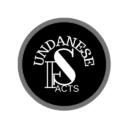Biography of Abdullah Mustappa: A Leading Figure in Sundanese Literature
Abdullah Mustappa, a significant figure in Sundanese literature, was born on November 8, 1945, in Sangojar, Selaawi Village, Garut. He is recognized not only for his literary contributions but also as the husband of Aam Amilia, a renowned mentor for Sundanese authors. Abdullah’s influence on Sundanese literature is profound and far-reaching.
Before his involvement in television, Abdullah had already established himself as a skilled writer, contributing to several newspapers and magazines. He worked as the editor of Manglé magazine and played a key role in managing the weekly publication Galura. He also served as a correspondent for Mimbar and Tempo magazines. Furthermore, he was actively involved in “Pusaka Karsa Sunda”, a publisher responsible for the short story magazine “Katumbiri”. Later, he contributed editorials for the newspaper “Pikiran Rakyat”.
In literature, Abdullah showcased versatility by writing poetry, short stories, and novels, predominantly in Sundanese. His notable works include the novel “Lembur Singkur” (2001), as well as editorial contributions to anthologies like “Sawidak Carita Pondok” (1982) and “Saratus Sajak Sunda” (1992).
Abdullah’s literary and journalistic excellence earned him several awards, including the “Kartini Novelette Writing Competition” and “Amir Hamzah Essay Writing Contest”. He also received journalism accolades like the “Zulharmans Journalism Award” and the “Moh. Koerdie Journalism Award”.
Now retired from “Pikiran Rakyat”, Abdullah spends his time enjoying his hobbies, such as reading, listening to music, watching films, and following soccer matches on television.
Educational Background, Organizations, and Career
Abdullah Mustappa journey reflects his dedication to education, organization, and journalism. His early studies at SR Selaawi, SMP Ganesha, and SMA YPU laid a strong foundation for his career. He actively contributed to several organizations, while his work in media, particularly as Deputy Editor-in-Chief at Manglé, showcased his leadership and cultural preservation efforts.
Education History:
Abdullah Mustappa educational journey began at SR Selaawi in Limbangan, where he studied from 1952 to 1958. He then continued his education at SMP Ganesha in Bandung from 1959 to 1961, and finally graduated from SMA YPU in Bandung from 1961 to 1964. This solid educational foundation equipped him with the knowledge and skills essential for his future endeavors.
Organizational History:
In addition to his education, Abdullah Mustappa actively participated in various organizations. He served as the Chairman of PP-SS from 1996 to 1999, contributing to the organization’s growth and influence. Moreover, he held the position of Secretary at Yakeswari in 1980 and was an administrator at LBSS in 1989. Abdullah Mustappa also played a vital role in the Daya Budaya Sunda Foundation, further demonstrating his commitment to cultural preservation.
Career:
Abdullah Mustappa career began in 1968 as an employee at the Regional Office of the Department of Education and Culture in Bandung. He later worked at the Rubber and Chemical Corporation of West Java Province from 1969 to 1971. In 1972, he became a correspondent for “Mimbar” magazine and then transitioned to journalism at “Manglé” from 1974 to 1985, where he eventually became Deputy Editor-in-Chief. Additionally, he contributed as a correspondent for “Tempo” from 1977 to 1981. His leadership skills shone when he directed “Pustaka Karsa Sunda” publishing from 1985 to 1988. He continued to excel as Managing Editor of “Galura” from 1988 to 2000 and as Opinion Editor at “Pikiran Rakyat” from 2001 to 2003.
Abdullah Mustappa’s Literary Works
Abdullah Mustappa has made significant contributions to literature through his diverse works, showcasing his creative talents across various genres. His first novel, “Lembur Singkur,” was published in 1979, with subsequent editions released in 2001, 2018, and 2022, highlighting its enduring appeal. He expanded his literary repertoire with “Nu Teu Kungsi Kalisankeun,” a short story collection released in 1985, and the novel “Mikung,” also published in the same year.
In 1985, he contributed to education with “Wirahma Sajak,” a literature textbook. His creativity further shone through children’s literature, with works like “Hang Tuah” (2020) and “Taréh Rosululloh” (1995). His novel “Cihaliwung Nunjang Ngidul” followed in 1998.
Additionally, Abdullah Mustappa authored a series about Prophet Muhammad, including titles such as “Muhammad al-Amin” and “Cilaka! Abu Lahab” (all published in 1994). He also explored regional literature and journalism with “Pijar Aksara: Dua Windu Rumah Baca Buku Sunda” (2020) and “Majalah Sunda: Ragam Jurnalistik Sunda Melawan Komunis” (2018). His poetry collections, “Titimangsa: 68 Sajak Alit” (2018) and “Wirahma Sajak: Panganteur Apresiasi Sajak Sunda Pikeun Siswa Sakola Lanjutan” (2018), reflect his dedication to enriching Sundanese literary culture.
With his distinguished career and significant contributions to Sundanese literature, Abdullah Mustappa remains a respected and celebrated figure in Indonesia’s cultural heritage. His works continue to inspire and enrich the literary landscape, especially for the Sundanese-speaking community.
Reference:
As a reliable source of information, this article draws on a variety of references from both books and academic journals. These sources provide well-researched and credible insights, ensuring that the content presented is accurate and supported by established scholarly materials.
Here are the references from the article above.
- Rosidi, A., dkk. (2003). Apa Siapa Orang Sunda. Bandung: PT Kiblat Buku Utama.
Read More Article Unlock the Hidden Genius of Apip Mustopa The Legendary Writer You’ve Never Heard Of!





